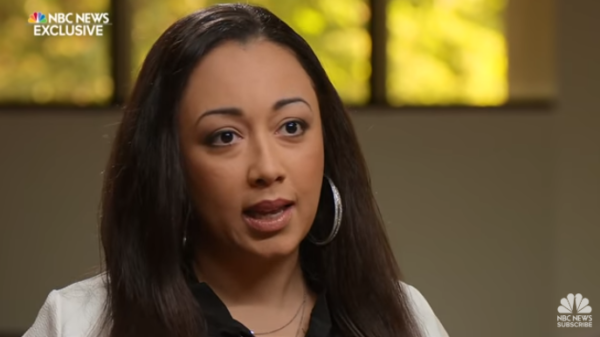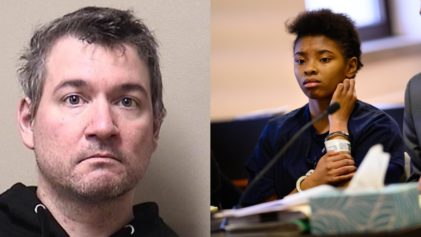After her release from prison earlier this year, Cyntoia Brown is opening up about her time on the inside, owning her mistakes, and what life looks like beyond incarceration.
“I want them to see that I’m so much more than the worst things that I’ve done,” Brown, 31, told NBC’s Lester Holt in her first post-prison interview, which aired Monday night.

Cyntoia Brown, 31, was sentenced to life in prison at 18 years old after shooting and killing a man she says solicited her for sex. (Photo: NBC Nightly News / video screenshot)
The sit-down comes just days before the release of her new memoir, “Free Cyntoia: My Search for Redemption in the American Prison System,” and an upcoming appearance in Nashville, Tennessee.
At 18 years old, Brown was convicted and sentenced to life in prison for fatally shooting a 43-year-old man she says solicited her for sex. Prosecutors painted her as a coldblooded-killer, however, Brown and her defenders said she was a victim of sex trafficking.
Her case made national headlines, drawing support from celebrities like Rihanna, Kim Kardashian and LeBron James, who rallied for the courts to #FreeCyntoia. Brown would spend 15 years behind bars before having her sentence commuted by former Tennessee Gov. Bill Haslam on January 7.
“It was like the most amazing feeling,” she told Holt. “It was kind of like, I could just breathe.”
In August, she was officially released from the Tennessee Prison for Women
Brown is now busy enjoying life as a free woman, alongside her new husband; she recently wed gospel hip-hop artist Jamie “J” Long shortly after her release. Still, she said she often thinks about the night that landed her behind bars.
At her 2006 trial, the then-teenager said she shot real estate broker Johnny Allen because she feared he was about to kill her when he suddenly reached to one side of his bed for a gun as they were lying on it. The shooting happened in 2004, when Brown was just 16 years old.
“He is a victim, you know?” she said. “He was, he was, his family’s a victim. You know, his friends, the people that knew him, the people that loved him. Like, they had someone snatched away from them. And I did that.”
Brown told Holt she had to defend herself, “expecting men to be violent towards me.”
Brown would go on to earn her high school diploma and a college degree while in prison. Now, she hopes to serve as an example for other young women, so that they don’t also become victims of sex trafficking.
“I can’t tell you how many Cyntoia Browns are still in prison,” she said. “In seeing me, I feel you’re able to see them. Because they’re just like me.”
“It’s an honor to actually be a picture of what rehabilitation looks like, of what it looks like when we do give people a second chance,” Brown added.
Watch more in the video below.


